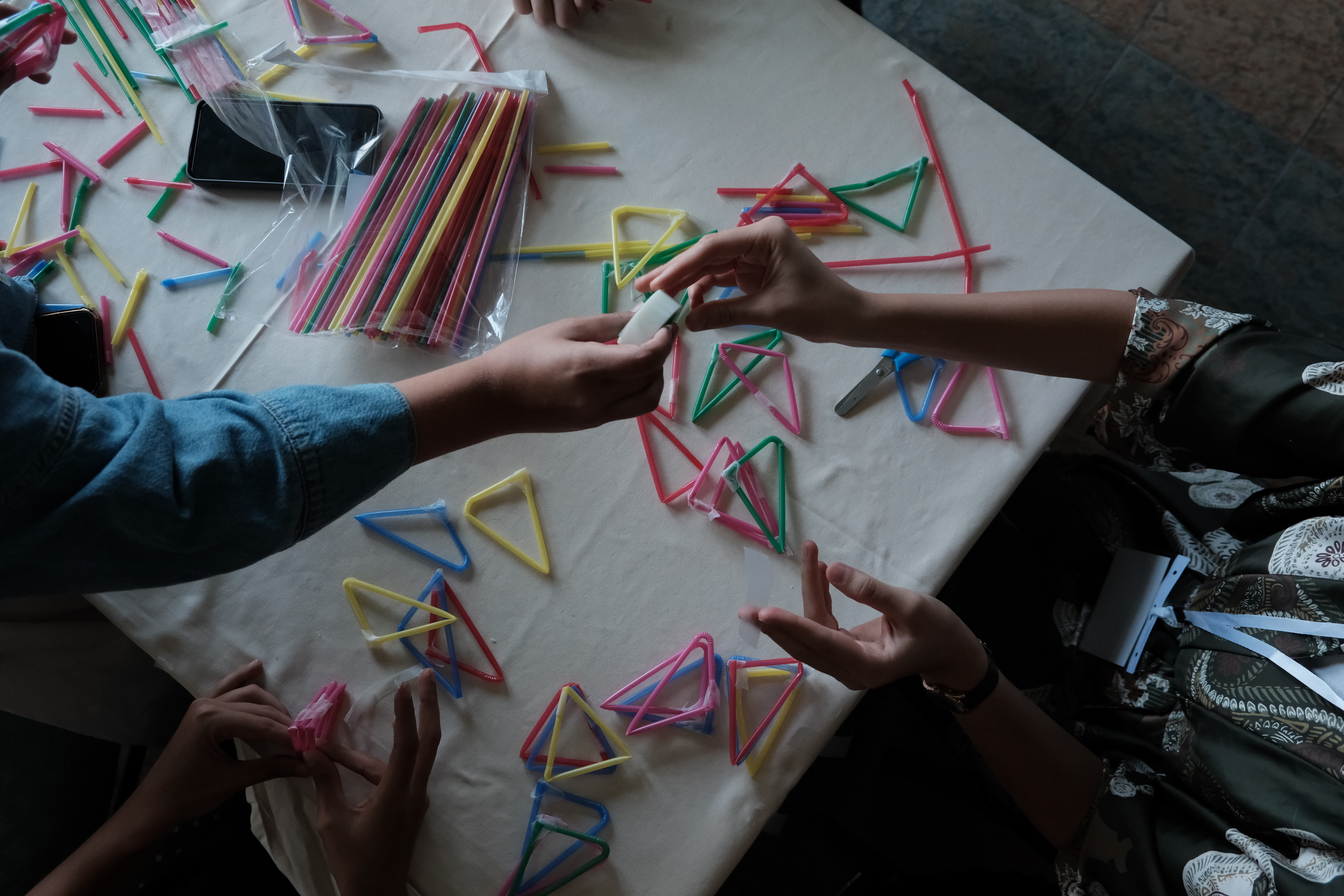
Young people from Bosnia and Herzegovina, Croatia, Serbia, and Montenegro have gathered this month for the two-week Youth Academy “State of Peace,” organized by the European Union in Bosnia and Herzegovina, in cooperation with the Post-Conflict Research Center.
The academy aims to teach peacebuilding and democratic values through workshops, networking, and study visits.
The discussions at the academy quickly moved beyond theory, as both speakers and participants reflected on the personal and social changes that can come from meeting across borders.
Sofija Todorović, Director of the Youth Initiative for Human Rights in Serbia, noted to the participants that if they believe young people are the future, then activism is extremely important. “They should ask each other questions about the knowledge and narratives they’ve inherited from their families, their country, and the school system. We believe that only by doing this can they build understanding—and if they add facts and other perspectives to it, then their joint efforts can bring change and set new practices we haven’t seen to this extent before,” said Todorović.
Other speakers also underlined how these exchanges and programs can help new generation learn about the past and different narratives than the ones they grew up with. Jasmin Jašarević, General Manager of the PRONI Center for Youth Development, pointed out that due to gaps in the education system, and narratives young people hear from their parents, neighbors, and others, they end up with a distorted understanding of the past.
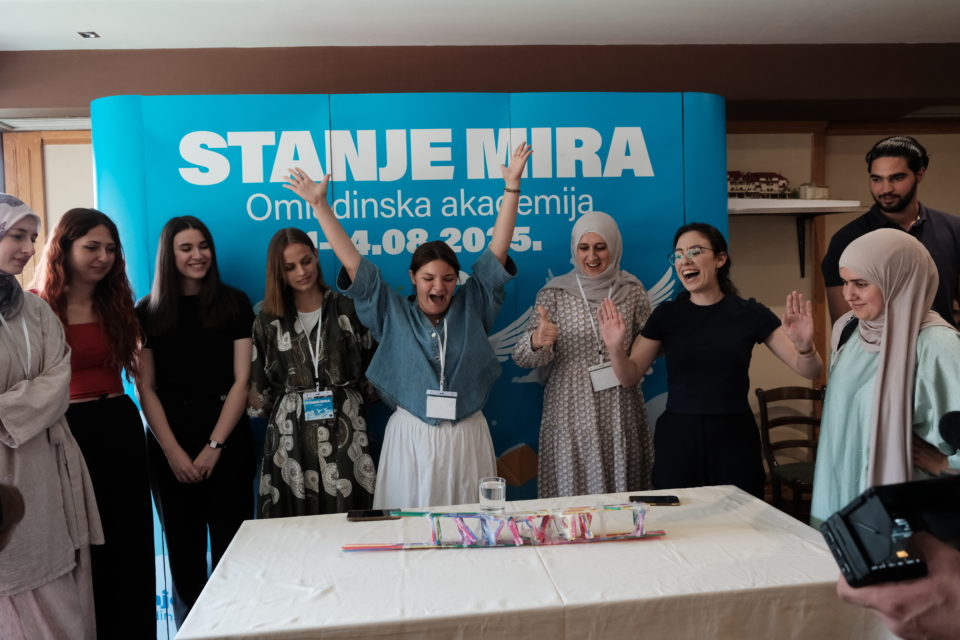
Activist from East Sarajevo, Mirjana Trifković Marjanović believes young people are a key force for building sustainable peace because they bring freshness, authentic perspectives, and the courage to question narratives often rooted in divisions. Speaking about young people’s interest in activism, Slobodan Blagovčanin from the Youth Resource Center in Tuzla emphasized the lack of opportunities and a poorly organized system in smaller communities.
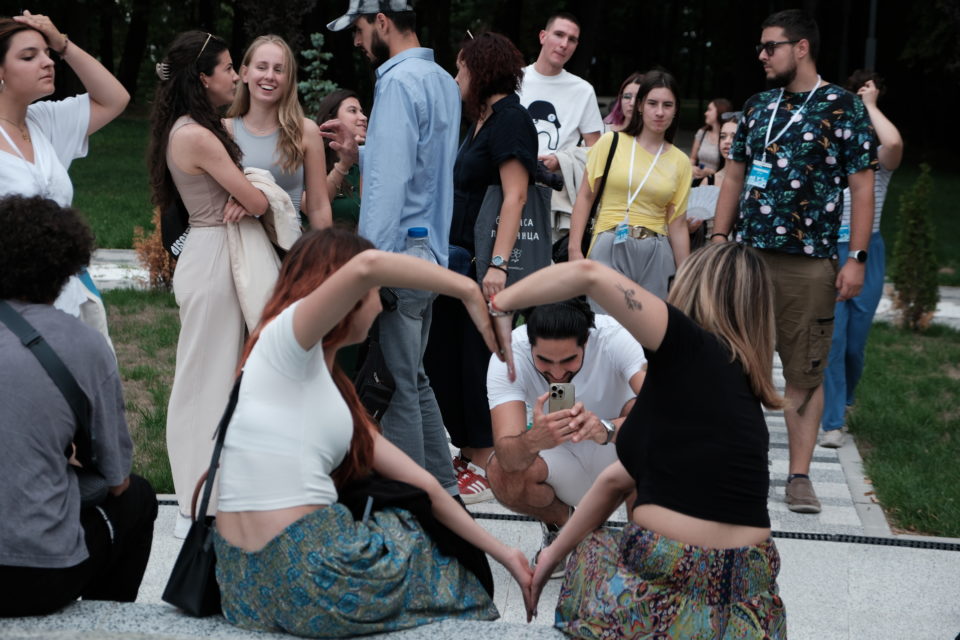
“A successful approach is when we connect youth from different communities, giving them the chance to share their narratives and talk about them. Only then can we start to talk about dealing with the past and reconciliation. Even though this generation didn’t fight in the war, they still inherit transgenerational trauma. Regional cooperation must happen, and it’s the only way forward,” Blagovčanin concluded.
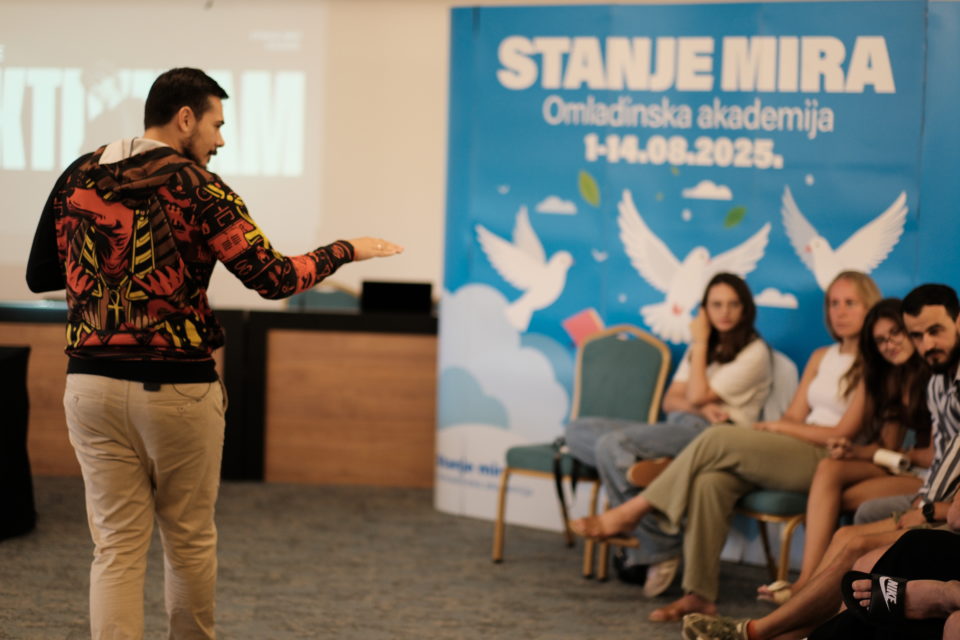
Bojan Marković from the BB Citizens’ Association in Ugljevik in his encounter with the group, pointed out that youth activism in Ugljevik is quite lethargic, but through the project “Možemo bolje” funded by the European Union while involving three municipalities from the Federation and two from Republika Srpska, they managed to connect young people through a Youth Festival featuring cultural and music events.
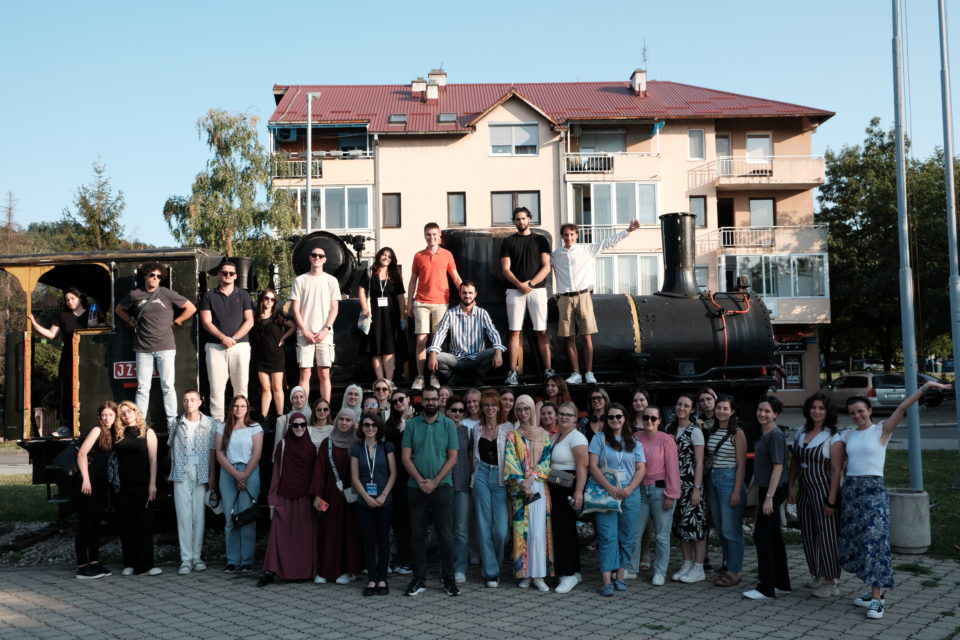
An activist and participant from Zagreb, Croatia Iris Knežević said social engagement is extremely important to her as a way of responding to injustice, manipulation, or any form of inequality. “I simply can’t stand by and pretend I don’t see injustice,” she added. “I believe regional youth connections can have huge importance. Through the exchange of experiences, we can create space for joint reflection and the development of ideas, learning from one another, and working together, which is especially important for peace in post-conflict communities like ours,” Knežević explained.
The Regional State of Peace Youth Academy took place between 1 and 14 August, bringing together 50 participants from 4 countries and 29 local communities. The program took them on a journey around the country, visiting 7 towns/municipalities in BiH where they had chance to speak to number of different interlocutors such as religious leaders, peace activists, victims of war, CSO representatives, international community, and others.





